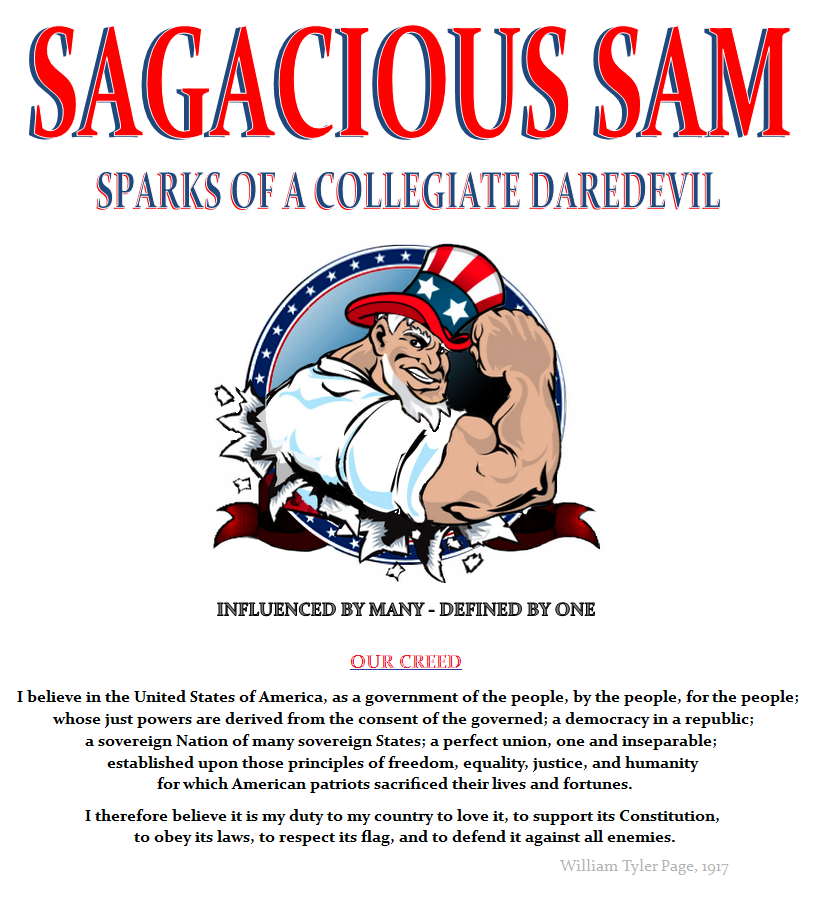From time-to-time, when I am feeling unfounded, confused and overlapped – by no cause other than myself – I make a genuine effort of intrapersonal understanding. There are so many things that I think, I know, I “believe;” for me, that known knowing is the exigency which entices me to rewrite myself. I’ve recently – for the last three weeks, and at limited expense to my societal duties – allowed myself time for myself: time to think for myself, time to discuss myself, and time to read for myself. I have written very little in that time, but I was purposed with my inaction. The entire process of de- and reconstruction of one’s self should be, in my mind, internal, until there is no longer a metaphysical fog through which the mind’s eye must strain. I am happy to report that today is that day.
Where I have cognitively landed is hard to say, being that I’ve just arrived and I’m psychologically jetlagged, but I’m back, and my voice – thought it may be shaky at times – is more focused and will remain to be unapologetically assertive: Objectivist.
From this day forward, “This Is Sagacious Sam Speaking,” and we – myself and I – will be championing the “New Intellectual,” “We who are not about to die…” as Ayn Rand prophesized and philosophized in her essay For The New Intellectual.
This country is too great, not in size, but in mind, to be under the yoke of mediocrity; we, the Future Force, can be America’s re-Founding Fathers. This will be a long fight, but I intend to win.
The Founding Fathers were America’s first intellectuals and, so far, her last. It is their basic political line that the New Intellectuals have to continue. … The New Intellectuals must remind the world that the basic premise of the Founding Fathers was man’s right to his own life, to his own liberty, to the pursuit of his own happiness—which means: man’s right to exist for his own sake, neither sacrificing himself to others nor sacrificing others to himself; and that the political implementations of this right is a society where men deal with one another as traders, by voluntary exchange to mutual benefit.
Who are to be the New Intellectuals? Any man or woman who is willing to think. All those who know that man’s life must be guided by reason, those who value their own life and are not willing to surrender it to the cult of despair in the modern jungle of cynical impotence, just as they are not willing to surrender the world to the Dark Ages and the rule of the brutes.
The need for intellectual leadership was never as great as now. No human being who has a trace of personal worth can be willing to surrender his life without lifting a hand—or a mind—to defend it, particularly not in America, the country based on the premise of man’s self-reliance and self-esteem. Americans have known how to erect a superlative material achievement in the midst of an untouched wilderness, against the resistance of savage tribes. What we need today is to erect a corresponding philosophical structure, without which the material greatness cannot survive. … To support a culture, nothing less than a new philosophical foundation will do. The present state of the world is not the proof of philosophy’s impotence, but the proof of philosophy’s power. It is philosophy that has brought men to this state—it is only philosophy that can lead them out.
Those who could become the New Intellectuals are America’s hidden assets; their number is probably greater than anyone can estimate; they exist in every profession, even among the present intellectuals. But they are scattered in silent helplessness throughout the country, or hidden in that underground which, in human history, has too often swallowed the best of men’s potential: subjectivity. They are the men who have long since lost respect for the cultural standards to which they conform, but who hide their own convictions or repress their ideas or suppress their minds, each feeling that he has no chance against the other, each serving as both victim and destroyer. The New Intellectuals will be those men who will come out into the open and have the courage to break that vicious circle.
If they glance at the state of our culture, they will see that the entire miserable show is kept up by nothing but routine and pretense, which disguise bewilderment and fear: nobody dares to take the first new step, everybody waits for his neighbor’s initiative. … The greatest need today is for men who are not strangers to reality, because they are not afraid of thought. The New Intellectuals will be those who will take the initiative and the responsibility: they will check their own philosophical premises, identify their convictions, integrate their ideas into coherence and consistency, then offer to the country a view of existence to which the wise and honest can repair.
The New Intellectual will be the man who lives up to the exact meaning of his title: a man who is guided by his intellect—not a zombie guided by feelings, instincts, urges, wishes, whims or revelations. … He will discard its irrational confliction and contradictions, such as: mind versus body, thought versus action, reality versus desire, the practical versus the moral. He will be an integrated man, that is: a thinker who is a man of action.
The New Intellectuals must fight for capitalism, not as a ‘practical’ issue, not as an economic issue, but, with the most righteous pride, as a moral issue. That is what capitalism deserves, and nothing else will save it.
The New Intellectuals must assume the task of building a new culture on a new moral foundation, which, for once, will not be the culture of Attila and the Witch Doctor, but the culture of the Producer. They will have to be radicals in the literal and reputable sense of the word: ‘radical’ means ‘fundamental.’ The representatives of intellectual orthodoxy, conventionality and status quo, the Babbitts of today, are the collectivists. Let those who do care about the future, those willing to crusade for a perfect society, realize that the new radicals are the fighters for capitalism.
It is into the midst of this dismal gray vacuum that the New Intellectual must step—and must challenge the worshipper of doom, resignation and death, with an attitude best expressed by a paraphrase of an ancient salute: ‘We who are not about to die…'
-Ayn Rand, For The New Intellectual, 1961
Talon's Out.
Talon's Out.








No comments:
Post a Comment